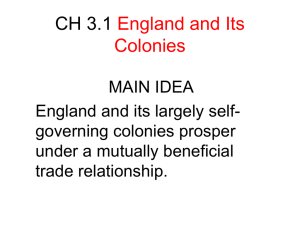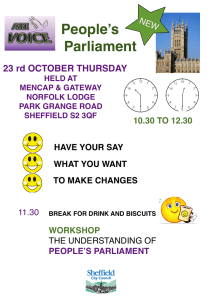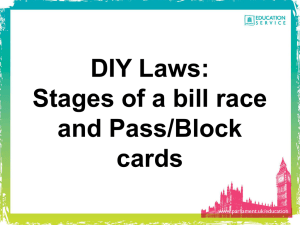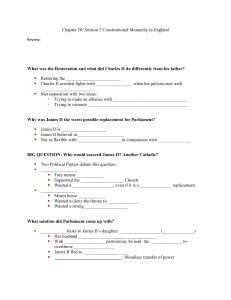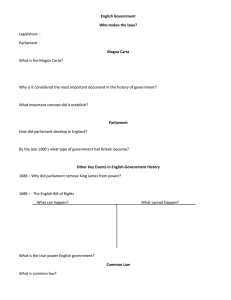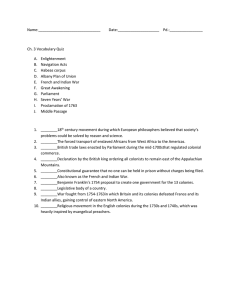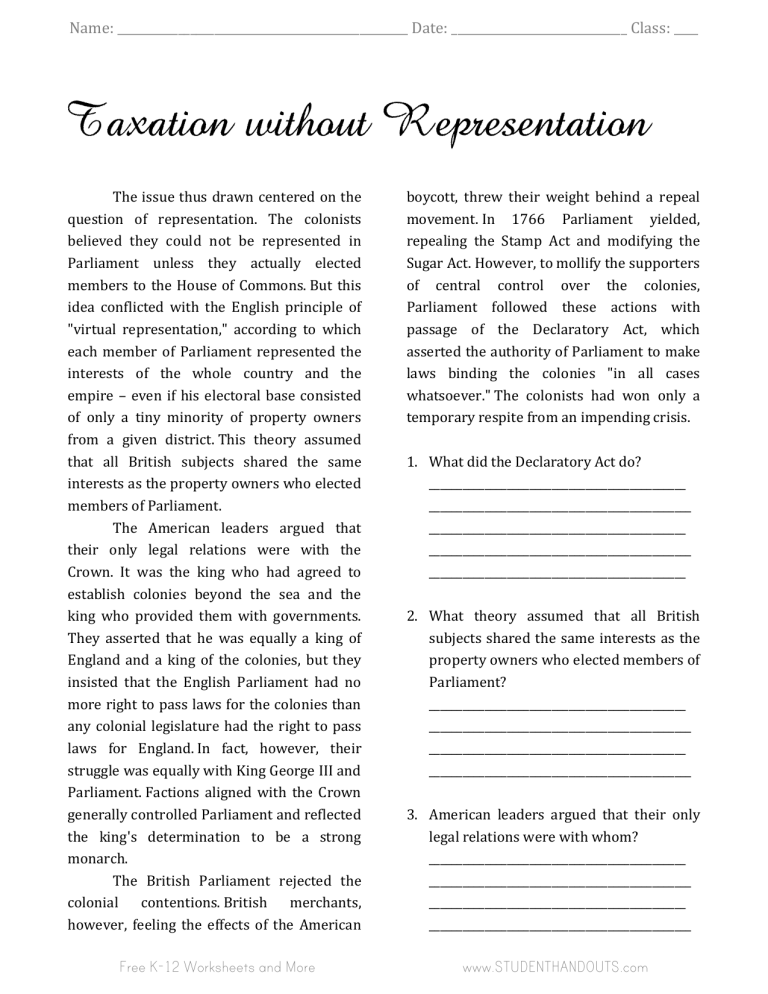
Name: ________________________________________________ Date: _____________________________ Class: ____ Taxation without Representation The issue thus drawn centered on the question of representation. The colonists believed they could not be represented in Parliament unless they actually elected members to the House of Commons. But this idea conflicted with the English principle of "virtual representation," according to which each member of Parliament represented the interests of the whole country and the empire – even if his electoral base consisted of only a tiny minority of property owners from a given district. This theory assumed that all British subjects shared the same interests as the property owners who elected members of Parliament. The American leaders argued that their only legal relations were with the Crown. It was the king who had agreed to establish colonies beyond the sea and the king who provided them with governments. They asserted that he was equally a king of England and a king of the colonies, but they insisted that the English Parliament had no more right to pass laws for the colonies than any colonial legislature had the right to pass laws for England. In fact, however, their struggle was equally with King George III and Parliament. Factions aligned with the Crown generally controlled Parliament and reflected the king's determination to be a strong monarch. The British Parliament rejected the colonial contentions. British merchants, however, feeling the effects of the American boycott, threw their weight behind a repeal movement. In 1766 Parliament yielded, repealing the Stamp Act and modifying the Sugar Act. However, to mollify the supporters of central control over the colonies, Parliament followed these actions with passage of the Declaratory Act, which asserted the authority of Parliament to make laws binding the colonies "in all cases whatsoever." The colonists had won only a temporary respite from an impending crisis. Free K-12 Worksheets and More www.STUDENTHANDOUTS.com 1. What did the Declaratory Act do? ______________________________________________ _______________________________________________ ______________________________________________ _______________________________________________ ______________________________________________ 2. What theory assumed that all British subjects shared the same interests as the property owners who elected members of Parliament? ______________________________________________ _______________________________________________ ______________________________________________ _______________________________________________ 3. American leaders argued that their only legal relations were with whom? ______________________________________________ _______________________________________________ ______________________________________________ _______________________________________________
